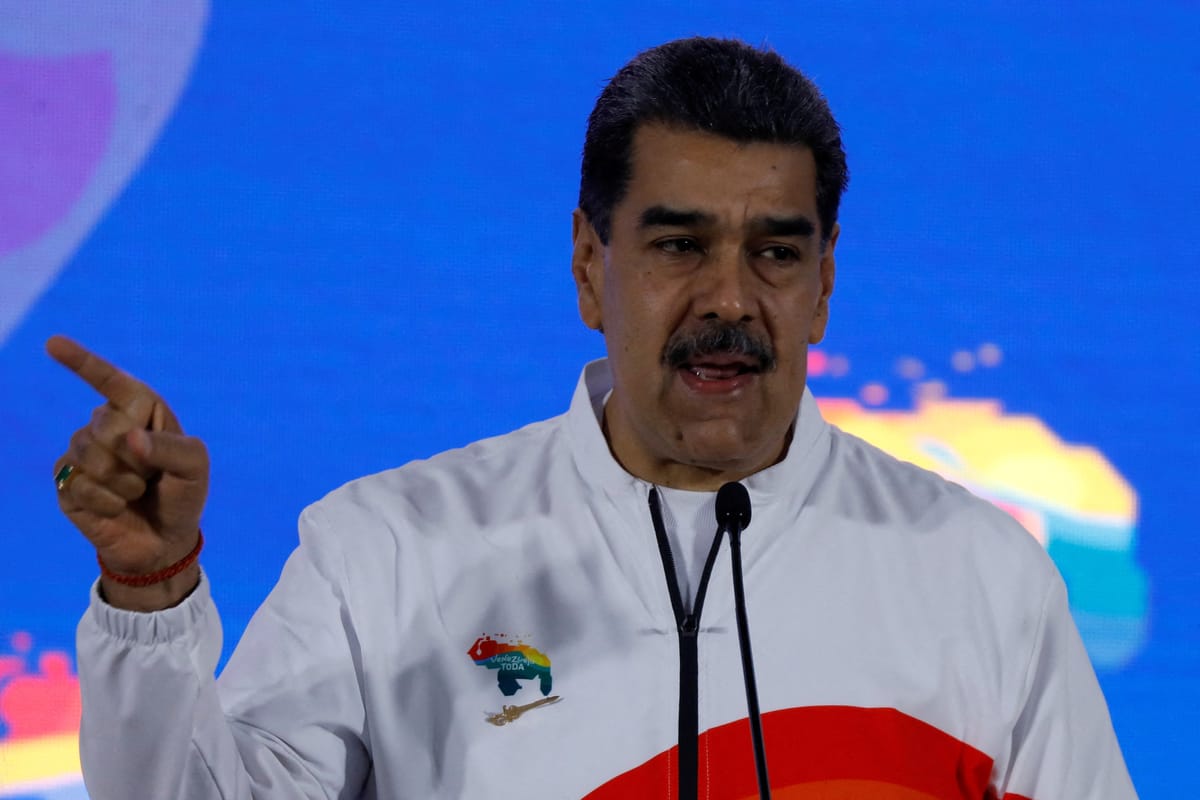Venezuela holds a controversial referendum over oil-rich territory
Essequibo is governed by Guyana, but there’s been a longstanding dispute over the land, with Venezuela staking a claim to it.

A few minutes every morning is all you need.
Stay up to date on the world's Headlines and Human Stories. It's fun, it's factual, it's fluff-free.
The backstory: Essequibo is an area along the Venezuela/Guyana border. It’s pretty big – almost 160,000 square kilometers (62,000 square miles), and about 125,000 people live there. Essequibo is governed by Guyana, but there’s been a longstanding dispute over the land, with Venezuela staking a claim to it.
Venezuela says that Essequibo was inside its borders when it declared independence from Spain in 1811. But, in 1899, the area was awarded by an international tribunal to the British, who were still ruling Guyana as a colony. Right before Guyana became independent in 1966, Venezuela and Britain signed an agreement to keep Essequibo in Guyana until a more permanent decision could be agreed on. The region now makes up more than half of Guyana’s territory. In 2015, oil was found in the area, which complicated this dispute more.
More recently: Earlier this year, more oil reserves were found in Essequibo, and Guyana announced it would be accepting bids to drill there. Soon after, Venezuelan President Nicolás Maduro called for a national referendum on whether or not to formally claim Essequibo as Venezuelan territory.
Critics have speculated that Maduro wants to shift the political focus from the upcoming 2024 election as Venezuelans call for freer and fairer democratic processes by stirring the patriotic pot, so to speak. But, last Friday, the International Court of Justice (ICJ) called on Venezuela not to do anything that would mess with the current status quo of Essequibo. Maduro’s government says that the ICJ doesn’t have jurisdiction over this situation.
The development: Venezuelans voted on the referendum on Sunday, and it’s expected to go through. It included five questions, essentially asking voters if they agree that Essequibo belongs to Venezuela, that the ICJ doesn’t have jurisdiction, if they oppose Guyana’s “unilateral” use of the waters off Essequibo and if Venezuela should create a “Guyana Essequibo state” that would put it into Venezuela’s territory.
The way that these questions are worded has brought a lot of criticism, especially from Guyana. While the referendum is nonbinding, Guyana sees it as a step toward annexing Essequibo. It’s unclear exactly what will happen if it goes through. But Guyana has sent more police to the Venezuelan border. Brazil, which shares a border with Essequibo, has also sent troops to the region. Venezuela hasn’t deployed any more forces to the border, though.
Key comments:
“Essequibo is ours, every square inch of it,” President Irfaan Ali of Guyana said.
“Venezuela shall refrain from taking any action which would modify the situation that currently prevails in the territory in dispute,” the International Court of Justice (ICJ) ruled.
“Maduro needs to wrap himself in the flag for electoral reasons, and obviously a territorial dispute with a neighbor is the perfect excuse,” explains Phil Gunson, a Venezuela-based analyst with the International Crisis Group.
“The longstanding row over the border between Guyana and Venezuela has risen to a level of unprecedented tension in the relations between our countries,” Guyanese Foreign Minister Robert Persaud wrote Wednesday.




Comments ()